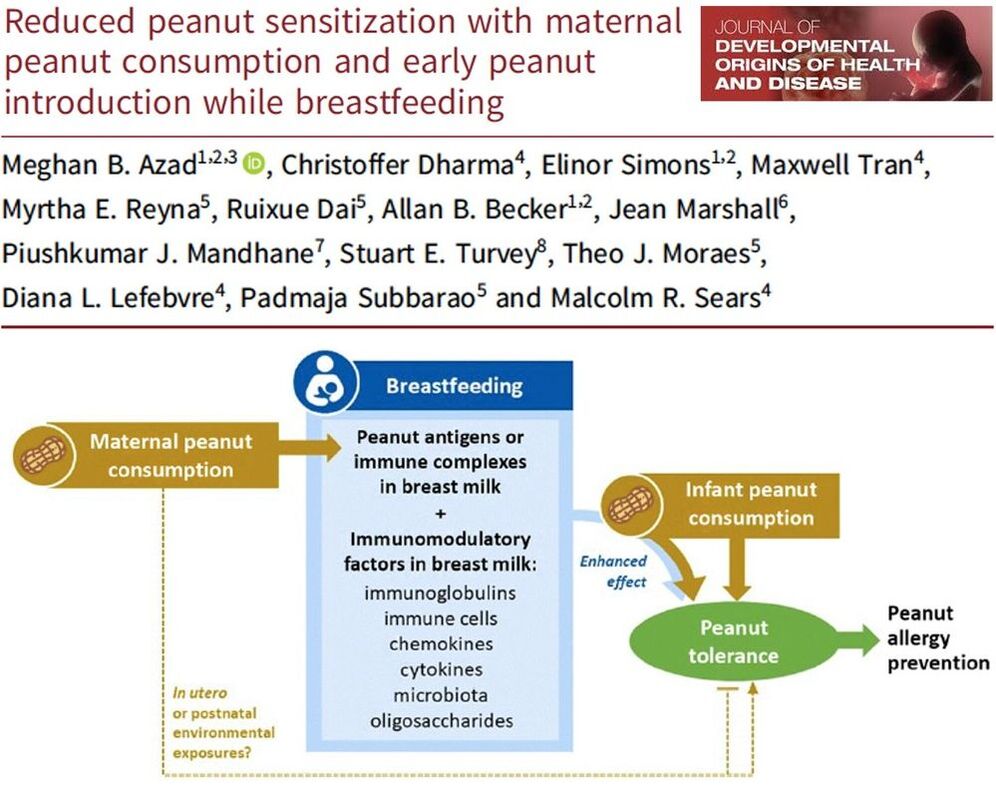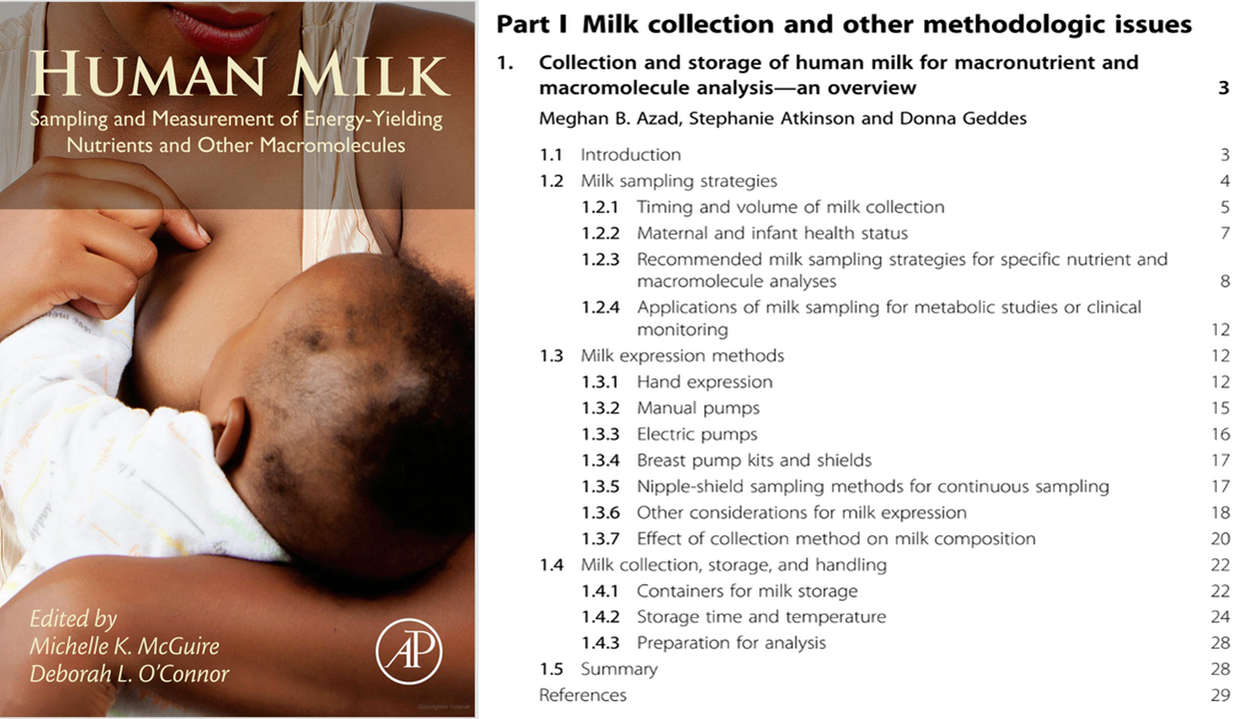|
A new Journal of DOHaD paper authored by Dr. Azad and colleagues using CHILD Cohort Study data explains a novel hypothesis as to why some children develop peanut allergies and others do not. "Reduced peanut sensitization with maternal peanut consumption and early peanut introduction while breastfeeding" describes this "triple exposure". When combined, infant peanut consumption, maternal peanut consumption, and breastfeeding appear to significantly reduce the risk of peanut sensitization. Check out the CHRIM press release and Tweetorial!
Human milk research presents an array of logistical and methodological challenges. The comprehensive text, Human Milk: Sampling and Measurement of Energy-Yielding Nutrients and Other Macromolecules, was written by an international group of human milk experts and addresses these challenges head-on. Dr. Azad co-authored Chapter 1, “Collection and storage of human milk for macronutrient and macromolecule analysis – An overview.” This chapter describes milk sampling strategies, milk expression methods, and the collection, storage and handling of human milk. This is Dr. Azad's first book chapter publication!
Dr. Azad was honoured a Canada's Most Powerful Women: Top 100 2020 Award Winner by the Women's Executive Network (WXN), which recognizes the highest achieving female leaders across Canada. When asked to describe what motivates her most, Azad explained, “I’m fueled by the excitement of doing cutting-edge science, and the drive to translate discoveries to make a meaningful impact on child health globally. I’m inspired by my team! Our projects are large, collaborative and transdisciplinary. We are constantly learning from and challenging each other to break new ground with our research.” Congratulations on this amazing achievement, Meghan!
|
MILC News
|






